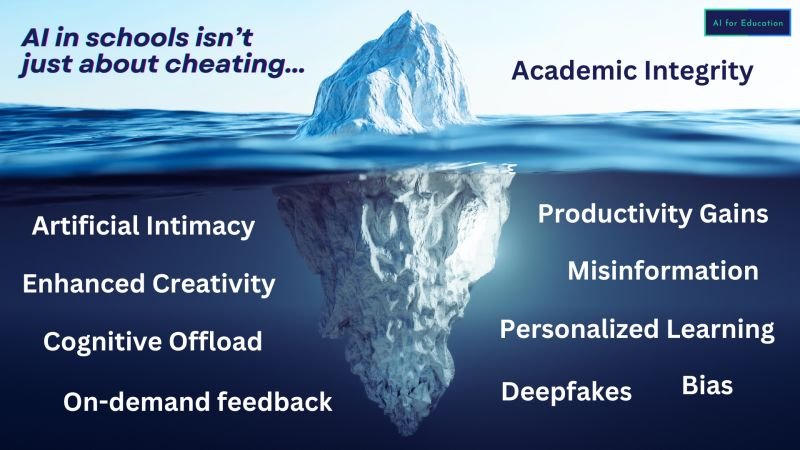AI in Education: Beyond the Tip of the Iceberg
Most of the attention on the impact of AI in education has focused solely on academic integrity and cheating. But that is just the tip of the iceberg.
While concerns about AI-assisted cheating and plagiarism are certainly valid, they represent only one of the many potential impacts of AI on our education system. Beneath the surface lies a vast array of both challenges and transformative possibilities that deserve our attention.
It's no surprise that academic integrity has dominated the conversation. AI's capabilities and ease of use have forced educators and academic institutions to update their policies, rethink assessment, and, unfortunately, over-rely on some seriously flawed software solutions.
But beyond the tip of the iceberg lie critical challenges and opportunities that have to be a part of the conversation. As we navigate this new educational landscape, we must also explore how to harness AI's potential to enhance learning experiences, support diverse learners, and prepare students for a world where AI is increasingly prevalent.
And while AI offers many potential benefits, it also presents a range of very complex and deeply concerning challenges that extend far beyond just academic integrity like misinformation, deepfakes, and bias.
As educators, policymakers, and stakeholders, it's imperative for us to look beyond the surface, addressing both the promise and the perils of AI in education to ensure it serves as a tool for equitable, effective, and responsible learning.

